Frontiers in Photochemistry 2024 (XJTISS)
2024. 07 -2024.08
Xi’an, China
Introduction
Photochemistry and the corresponding functional materials hold a promising future in the fields of renewable energy, environmental protection, materials science, and also healthcare. Withthecontinued research and development, it is expected photochemistry can play an increasingly important role in addressing global challenges and driving technological progress. Based on this consideration, this course is composed of several lectures on the current frontiers of photochemistry and optical functional materials. They are given by researchers who are exporters in many different fields, such as polymer solar cells, organic light-emitting diodes, bioimaging, and also cancer therapy. There are 8 lectures in total. We are going to introduce the basic knowledge and development of photochemistry firstly. Then, some typical functional materials, such as conjugated polymers, organic photosensitizers, organic complexes, will also be well introduced. Finally, we will illustrate some potential applications in organic electronics of polymer solar cells and organic light-emitting diodes, biological application of bioimaging and also cancer therapy. To have better understanding of these lectures, it requires the students to have basic knowledge of chemistry and material science. The lectures are introductory but covers the latest advances, therefore it’s friendly to both undergraduate students in their sophomore and junior years, as well as graduate students with unlimited grades.
Teaching Masters
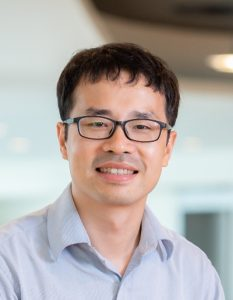
Xiaogang Liu
Prof. Xiaogang Liu has a multidisciplinary education, work, and research background. He studied in electrical and electronic engineering (2002-2006, B.Eng.), materials science and engineering (2008-2009, M.Sc./M.Eng.), and physical chemistry (2010-2014, PhD). He also worked in the industry as a product engineer (2006-2008, semiconductor), a research engineer (2010, optics), and a research associate (2013, solar cells). He began his independent research with a SMART Scholar Fellowship (2014-2016) and joined Singapore University of Technology and Design (SUTD) in 2017. Dr. Liu Xiaogang’s current research is to study the fundamental structure-property relationships of organic fluorescent dyes and sensors, which can be used in a diverse range of applications, such as fluorescence imaging, medical diagnostics, solar cells, and dye lasers. Based on such knowledge, he is developing novel fluorophores and sensors with enhanced performance. Dr. Liu Xiaogang is a Council Member of Singapore National Institute of Chemistry, and a Member of the Royal Society of Chemistry. At SUTD, his service includes Co-Chair of the Postgraduate Committee in the Science, Math and Technology Cluster, and Member of the Institutional Review Board. For community service, he served as the Vice-Chair of the Singapore Junior Chemistry Olympiad.
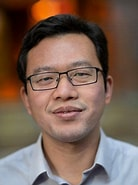
Ergang Wang
Prof.Ergang Wang was appointed as a Professor in the Department of Chemistry and Chemical EngineeringinChalmers University of Technology(Sweden)in 2019. He has been an Associate Professor in 2016-2019 and an Assistant Professor in 2012-2016. Previously, he has been a postdoc fellow in the same department from 2008 to 2011. He obtained his PhD degree in Materials Science in 2008 and Docentship in 2015. He was awarded as Wallenberg Academy Fellow in 2017 and his fellowship was prolongated for another 5 years in 2022. The focus of his research is on the development of new conjugated polymers, 2D materials and Graphene-like materials. The main applications of the materials are organic solar cells, photodetectors, light-emitting electrochemical cells, electrochromic, photocatalytic hydrogen production, supercapacitors and thermal management.
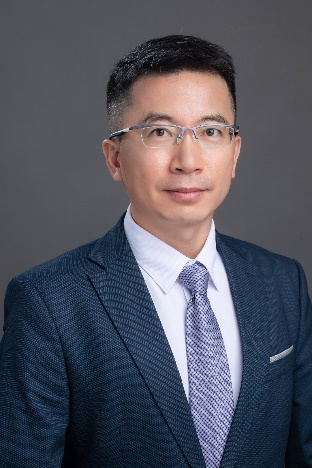
Ruibing Wang
Prof.Ruibing Wang is currently Professor of Supramolecular Pharmaceutics at University of Macau. He obtained his BSc and PhD degrees from Jilin University and Queen’s University, Canada, respectively. He joined University of Macau in 2014. Prof. Wang’s research interest is supramolecular biomaterials, and cell-mimetic and cell-based pharmaceutics. He has published over 200 peer-reviewed research papers on journals such as Nature Comm., Sci. Adv., JACS, Angew, Matter, Adv. Mater., Mater. Today etc, with a total citation of over 10,000 times and H-index of 56. He has won several prestigious awards and honors including 2018 Macao Science and Technology Award - Natural Science Award, 2019 UM Teaching Excellence Award, 2020 Macau Science and Technology Award - Technological Invention Award, and 2022 Macau Science and Technology Award – Natural Science Award. He is among the list of Stanford’s World's Top 2% Scientists. He is an active grant examiner for National Natural Science Foundation of China (NSFC), French National Research Agency (ANR), Israel Science Foundation (ISF), Czech Science Foundation (GACR), and National Science Centre of Poland (NCN). In addition, he actively serves as Editorial Board Member of Chinese Chemical Letters, and Supramolecular Materials, and Editorial Advisory Board Member of ACS Applied Bio Materials, he is also a council member of Supramolecular Chemistry Advisory Committee of Chinese Chemical Society.
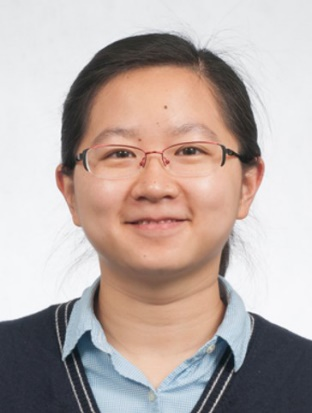
Sijie Chen
Prof. Sijie Chen is a Vice-Chancellor Associate Professor in the School of Life Sciences, The Chinese University of Hong Kong. She received her BSc in Biology from Wuhan University in 2009 and PhD in Bioengineering from Hong Kong University of Science and Technology (HKUST) in 2013. She worked as a Postdocal Fellow at HKUST and then as an Endeavour Fellow in University of Melbourne and as a visiting scientist in Walter and Eliza Hall Institute of Medical Research. She joined Prof Ana Teixeira’s group as a Postdoc in the Division of Biomaterials and Regenerative Medicine at the Department of Medical Biochemistry and Biophysics in Karolinska Institutet (KI) since late 2015. Sheis currentlyworking on fluorescent biosensors, fluorescence imaging and nanomaterials. She has authored and co-authored ~ 40 scientific papers in related areas.
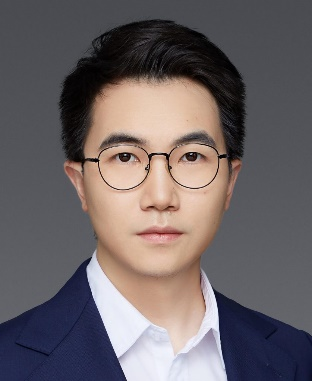
Changhuo Xu
Dr.ChanghuoXuis a Research Assistant ProfessorinFaculty of Health Sciences, University of Macau.HeobtainedhisBS degree from Tianjin University, thenhisMaster andPhD degree from Zhejiang UniversityandThe Hong Kong University of Science and Technology, respectively. After that, he alsoworked as a Postdocal Fellow at The Hong Kong University of Science and Technology. He is currentlyworkingas the tumor-microenvironment-responsive fluorescent probesand alsoaggregation-induced emission (AIE)activeluminogens for multiphoton bioimaging.
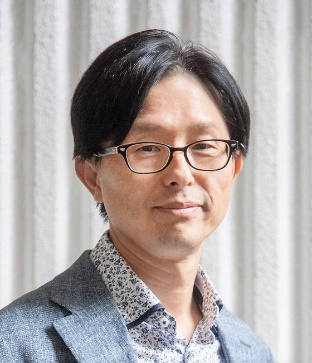
Dong Ha Kim
Prof. Dong Ha Kim received Ph.D. in the Department of Fiber and Polymer Science at Seoul National University. He performed postdoctoral researches in the Polymer Science and Engineering Department at the University of Massachusetts at Amherst and in the Materials Science Department at the Max Planck Institute for Polymer Research. He joined the Samsung Electronics Co. in the Memory Division of Semiconductor R & D Center as a senior scientist. He assumed a faculty position in the Department of Chemistry and Nano Science at Ewha Womans University in 2006. He is currently is a Full Professor, Ewha Fellow and Fellow of the Royal Society of Chemistry.His research interests include development of multi-functional hybrid nanostructures for applications in energy storage and conversion, environmental remediation, memory devices, display devices, and theranostics. Surface plasmon resonance mediated biomedical theranostics, photovoltaics, photocatalysis and light emission are also his lasting interests.He is acting as an editorial board member in eight international journals including editorial board member of Scientific Reports (Nature Publishing Groups) and associate editor of Science of Advanced Materials (American Scientific Publishers).
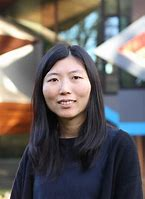
Yuning Hong
Prof.Yuning Hong received her BSc in Applied Chemistry from Sun Yat-sen University and Ph.D in Nano Science and Technology from the Hong Kong University of Science and Technology (HKUST) under the supervision of Prof Ben Zhong Tang. She did her postdoctoral training in Biophysical Chemistry in Prof Ekaterina V. Pletneva's group at Dartmouth College, NH, USA before returning to HKUST to take up the position of Research Assistant Professor and Junior Research Fellow of Institute for Advanced Study, HKUST.In 2014,She moved to Australia as a McKenzie Fellow in The University of Melbourne, working with Prof Trevor Smith in the Ultrafast and Microspectroscopy Laboratories. She joined La Trobe Institute for Molecular Science as a Bruce Stone Fellow in late 2016 to set up her own research group and was later appointed as a Senior Lecturer and Associate Professor in Chemistry. She was awarded an ARC DECRA Fellowship (2017-2020) and an ARC Future Fellowship (2022-2026). She is the recipient of the prestigious Le Fèvre Medal from Australian Academy of Science (2022) and the RACI Rita Cornforth Lectureship (2018). Her research centers around novel fluorescent bioprobe development for protein unfolding, misfolding and aggregation, oxidative stress and autophagy, and the study of their interplay in the context of neurodegenerative diseases.
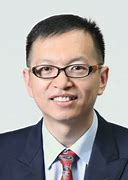
Yanli Zhao
Prof.Yanli Zhao currently holds the Lee Soo Ying Professorship at Nanyang Technological University. He received his B.Sc. and Ph.D. degree in chemistry from Nankai University. He was a postdoctoral scholar with Prof. Sir Fraser Stoddart at the University of California Los Angeles and subsequently at Northwestern University. He also carried out postdoctoral research with Prof. Jeffrey Zink at the University of California Los Angeles. The research programs in Zhao’s group focus on the development of integrated systems for diagnostics and therapeutics, as well as porous materials for gas/energy storage and catalysis. They utilize interdisciplinary approaches to investigate the emerging problems at the forefront of chemistry and materials sciences.
Curriculum System
Course format: synchronous online and offline teaching (Tencent Meeting)
Course arrangement:
Date |
Location |
Instructor |
Contents |
2024.07.03 15:00-16:30 |
iHarbour Campus,19-2104 |
Xiaogang Liu, Singapore University of Technology and Design |
Coming soon |
2024.07.10 15:00-16:30 |
iHarbour Campus,19-2104 |
Ergang Wang, Chalmers University of Technology |
Coming soon |
2024.07.17 15:00-16:30 |
iHarbour Campus,19-2104 |
Ruibing Wang, University of Macau |
Supramolecularly Engineered Cells for Targeted Photothermal Therapy |
2024.07.24 15:00-16:30 |
iHarbour Campus,19-2104 |
Sijie Chen, The Chinese University of Hong Kong |
Coming soon |
2024.07.31 15:00-16:30 |
iHarbour Campus,19-2104 |
Changhuo Xu, University of Macau |
Coming soon |
2024.08.07 15:00-16:30 |
iHarbour Campus,19-2104 |
Dong Ha Kim, Ewha Womans University |
A Paradigm Shift to Chiral Plasmonics toward Advanced Photo-Theragnostics |
2024.08.14 15:00-16:30 |
iHarbour Campus,19-2104 |
Yuning Hong, La Trobe University |
Coming soon |
2024.08.21 15:00-16:30 |
iHarbour Campus,19-2104 |
Yanli Zhao, NanyangTechnological University |
Polymer-Enhanced Room Temperature Phosphorescence |
Admission Information
Entry Requirement:The program caters to a wide variety of audiences, not only the undergraduates and postgraduates in Chemistry. All students are encouraged to join the program without grade requirements.
Enrollment:100 students online, unlimited number of students offline. Students from XJTU-Chem participate in offline courses, while students from other schools participate in online courses.
Student treatment:Xi'an Jiaotong University provides a study certificate (completion certificate) for this summer course, and will get the seminar stamps.
Others:
Registration
Please click the following link to register the program.
https://global.xjtudlc.com
After registration, please scan the QR code to join the program WeChat group for further information.

Contact
Dr.PeijuanZhang, Prof. Dongfeng Dang
Email:zuangpeijuan@stu.xjtu.edu.cn